Euro ramblings – Eins, Zwei, Drei, Vier, Fünf by Jade Craddock
 With England facing up to their most formidable of football rivals in Euro 2020’s Round-of-16, what better time to take a trip into German football and discover more about some of its stars, past and present, with a five-a-side line-up of German autobiographies already published, and a five-a-side of those that would make for a good read. Hopefully, they’ll share a thing or two about penalty shoot-outs…
With England facing up to their most formidable of football rivals in Euro 2020’s Round-of-16, what better time to take a trip into German football and discover more about some of its stars, past and present, with a five-a-side line-up of German autobiographies already published, and a five-a-side of those that would make for a good read. Hopefully, they’ll share a thing or two about penalty shoot-outs…
Five already published
 Lutz Pfannenstiel – Oliver Kahn and Jens Lehmann are two stalwarts of the German goalkeepers’ union who have published their autobiographies and you may be forgiven for wondering why they’ve been overlooked for a man who only represented Germany at U17 level, but The Unstoppable Goalkeeper by Lutz Pfannenstiel is heralded as one of the best football autobiographies around, in no large part because of Pfannenstiel’s, let’s say, colourful life. Across three decades, he achieved the feat of being the only footballer to play professionally in all six FIFA confederations, but his antics aren’t confined to the football pitch.
Lutz Pfannenstiel – Oliver Kahn and Jens Lehmann are two stalwarts of the German goalkeepers’ union who have published their autobiographies and you may be forgiven for wondering why they’ve been overlooked for a man who only represented Germany at U17 level, but The Unstoppable Goalkeeper by Lutz Pfannenstiel is heralded as one of the best football autobiographies around, in no large part because of Pfannenstiel’s, let’s say, colourful life. Across three decades, he achieved the feat of being the only footballer to play professionally in all six FIFA confederations, but his antics aren’t confined to the football pitch.
 Philipp Lahm – When Philipp Lahm’s first autobiography Der Feine Unterschied (The Subtle Difference) was published in 2011, it caused something of a stir for its outspoken views, so a second autobiography, published earlier this year (Das Spiel), is surely something to look out for – although, sadly, as yet I don’t believe either book has been translated into English. As a player, Lahm largely won it all, including the Bundesliga, Champions League and World Cup, and was considered one of the best full-backs of all time. He represented Germany 113 times across a ten-year period and led Germany to the 2014 World Cup as captain.
Philipp Lahm – When Philipp Lahm’s first autobiography Der Feine Unterschied (The Subtle Difference) was published in 2011, it caused something of a stir for its outspoken views, so a second autobiography, published earlier this year (Das Spiel), is surely something to look out for – although, sadly, as yet I don’t believe either book has been translated into English. As a player, Lahm largely won it all, including the Bundesliga, Champions League and World Cup, and was considered one of the best full-backs of all time. He represented Germany 113 times across a ten-year period and led Germany to the 2014 World Cup as captain.
 Lothar Matthaus – Another autobiography that sadly hasn’t yet been translated from its native German, Lothar Matthaus’s Ganz oder gar nicht (All or Nothing) was published in 2012, giving an insight into the career of a player who was named the first ever FIFA World Player of the Year. In his twenty years as a German international, Matthaus won both a UEFA European Championship in 1980 and the World Cup in 1990, setting the record of having played in five world cups (from 1982 to 1998), the most World Cup matches played (25) and is Germany’s most capped player (150). On the domestic front, he starred both in the Bundesliga and Serie A, winning titles in both Germany and Italy.
Lothar Matthaus – Another autobiography that sadly hasn’t yet been translated from its native German, Lothar Matthaus’s Ganz oder gar nicht (All or Nothing) was published in 2012, giving an insight into the career of a player who was named the first ever FIFA World Player of the Year. In his twenty years as a German international, Matthaus won both a UEFA European Championship in 1980 and the World Cup in 1990, setting the record of having played in five world cups (from 1982 to 1998), the most World Cup matches played (25) and is Germany’s most capped player (150). On the domestic front, he starred both in the Bundesliga and Serie A, winning titles in both Germany and Italy.
 Mesut Ozil – A divisive figure in his time in England at Arsenal, despite winning three FA Cups and a Community Shield, Mesut Ozil’s international record speaks for itself, with 23 goals in 92 appearances and a World Cup to boot. On top of that he holds the record for winning the German Player of the Year award five times and was top of the assist charts at both the 2010 World Cup and Euro 2012. Still plying his trade in Fenerbahce, Ozil’s domestic career has taken in three of the biggest European leagues, in the Bundesliga, La Liga and the Premier League, winning eight trophies across the board. His autobiography, Gunning for Greatness, was published in 2017.
Mesut Ozil – A divisive figure in his time in England at Arsenal, despite winning three FA Cups and a Community Shield, Mesut Ozil’s international record speaks for itself, with 23 goals in 92 appearances and a World Cup to boot. On top of that he holds the record for winning the German Player of the Year award five times and was top of the assist charts at both the 2010 World Cup and Euro 2012. Still plying his trade in Fenerbahce, Ozil’s domestic career has taken in three of the biggest European leagues, in the Bundesliga, La Liga and the Premier League, winning eight trophies across the board. His autobiography, Gunning for Greatness, was published in 2017.
 Miroslav Klose – Although Ronald Reng’s Miro (published in German) is technically a biography, it is hard to leave Germany’s top goalscorer off the list. With 71 goals in 137 appearances for Die Mannschaft from 2001 to 2014, Klose was instrumental to Germany’s 2014 World Cup win, as well as being runner-up in both the 2002 World Cup and 2008 Euros. He remains the top goalscorer at the World Cup with 16 goals in total, whilst his record of 19 goals at Euros and World Cups has just been surpassed by Cristiano Ronaldo. Domestically, he has represented FC 08 Homburg, 1. FC Kaiserslautern, Werder Bremen, Bayern Munich and Lazio.
Miroslav Klose – Although Ronald Reng’s Miro (published in German) is technically a biography, it is hard to leave Germany’s top goalscorer off the list. With 71 goals in 137 appearances for Die Mannschaft from 2001 to 2014, Klose was instrumental to Germany’s 2014 World Cup win, as well as being runner-up in both the 2002 World Cup and 2008 Euros. He remains the top goalscorer at the World Cup with 16 goals in total, whilst his record of 19 goals at Euros and World Cups has just been surpassed by Cristiano Ronaldo. Domestically, he has represented FC 08 Homburg, 1. FC Kaiserslautern, Werder Bremen, Bayern Munich and Lazio.
Five to be published
 Manuel Neuer – There is a history of dominant German goalkeepers, but Die Mannschaft’s current incumbent may just be the best yet. Named as the Best goalkeeper of the Decade by IFFHS, Neuer has cemented his legacy by winning the Golden Glove as Germany were victorious in Brazil 2014. A stalwart at Bayern Munich for the last decade, Neuer has 282 appearances to his name for Die Roten, as well as scooping nine Bundesliga titles, two Champions League, two Super Cups and two Club World Cups. He will surely be looking to add a Euro title to that impressive list this summer.
Manuel Neuer – There is a history of dominant German goalkeepers, but Die Mannschaft’s current incumbent may just be the best yet. Named as the Best goalkeeper of the Decade by IFFHS, Neuer has cemented his legacy by winning the Golden Glove as Germany were victorious in Brazil 2014. A stalwart at Bayern Munich for the last decade, Neuer has 282 appearances to his name for Die Roten, as well as scooping nine Bundesliga titles, two Champions League, two Super Cups and two Club World Cups. He will surely be looking to add a Euro title to that impressive list this summer.
 Franz Beckenbauer – Whilst a number of books have been written about the man nicknamed Der Kaiser, Franz Beckenbauer hasn’t penned an autobiography. Although there have been some off-field dramas in more recent years, there is little question of Beckenbauer’s on-field reputation. Representing his national side between 1965 and 1977, he featured in three World Cups and two Euros, winning the former in 1974 and the latter in 1972, as well as managing Germany to World Cup triumph in 1990. Individually, he holds a number of accolades, including being the only defender to win the Ballon d’Or twice, as well as being named in the World Team of the 20th Century, the FIFA World Cup Dream Team and the Ballon d’Or Dream Team.
Franz Beckenbauer – Whilst a number of books have been written about the man nicknamed Der Kaiser, Franz Beckenbauer hasn’t penned an autobiography. Although there have been some off-field dramas in more recent years, there is little question of Beckenbauer’s on-field reputation. Representing his national side between 1965 and 1977, he featured in three World Cups and two Euros, winning the former in 1974 and the latter in 1972, as well as managing Germany to World Cup triumph in 1990. Individually, he holds a number of accolades, including being the only defender to win the Ballon d’Or twice, as well as being named in the World Team of the 20th Century, the FIFA World Cup Dream Team and the Ballon d’Or Dream Team.
 Ilkay Gundogan – After taking the Premier League by storm last season, in his fourth year in English football, Ilkay Gundogan was suddenly on everyone’s radar, despite already having won the Bundesliga with Borussia Dortmund, two previous Premier League titles with Man City, as well as an FA Cup, EFL Cups and Community Shields. Whilst Man City were disappointed in the Champions League, Gundogan was named in both the UEFA Champions League Squad of the Season and the PFA Premier League Team of the Year. Should he feature against England, Gundogan will receive his 50th cap for Germany, but as yet has no trophies to show for his tenure. Triumph at Euro 2020 would round off an impressive campaign by the man from Gelsenkirchen.
Ilkay Gundogan – After taking the Premier League by storm last season, in his fourth year in English football, Ilkay Gundogan was suddenly on everyone’s radar, despite already having won the Bundesliga with Borussia Dortmund, two previous Premier League titles with Man City, as well as an FA Cup, EFL Cups and Community Shields. Whilst Man City were disappointed in the Champions League, Gundogan was named in both the UEFA Champions League Squad of the Season and the PFA Premier League Team of the Year. Should he feature against England, Gundogan will receive his 50th cap for Germany, but as yet has no trophies to show for his tenure. Triumph at Euro 2020 would round off an impressive campaign by the man from Gelsenkirchen.
 Michael Ballack – Despite being only a runner-up in both the World Cup and Euros, Michael Ballack was one of the mainstays of German football for over a decade, representing his nation 98 times and scoring some 42 goals. He won the German Footballer of the Year three times and was also named in both the 2002 and 2006 FIFA World Cup All-star teams. Domestically, he made his mark with both Bayern Munich, where he won three league titles, and Chelsea, where he won the Premier League title, three FA Cups, the Football League Cup and the Community Shield.
Michael Ballack – Despite being only a runner-up in both the World Cup and Euros, Michael Ballack was one of the mainstays of German football for over a decade, representing his nation 98 times and scoring some 42 goals. He won the German Footballer of the Year three times and was also named in both the 2002 and 2006 FIFA World Cup All-star teams. Domestically, he made his mark with both Bayern Munich, where he won three league titles, and Chelsea, where he won the Premier League title, three FA Cups, the Football League Cup and the Community Shield.
 Gerd Muller – Surprisingly, Germany’s Footballer of the Year in 1967 and 1969 and a striker largely considered to be one of the best of all time, Gerd Muller has not brought out an autobiography. A World Cup winner in 1974, scoring the winning goal in the final, and European Championship winner in 1972, Muller played some 62 times for West Germany scoring a remarkable 68 goals. He won the Ballon d’Or in 1970 and the Golden Boot at the World Cup in the same year. On the domestic front, in fifteen years at Bayern Munich, he scored a record 365 goals, as well as 66 goals in 74 European games, winning the Bundesliga four times, the European Cup and European Cup Winners’ Cup.
Gerd Muller – Surprisingly, Germany’s Footballer of the Year in 1967 and 1969 and a striker largely considered to be one of the best of all time, Gerd Muller has not brought out an autobiography. A World Cup winner in 1974, scoring the winning goal in the final, and European Championship winner in 1972, Muller played some 62 times for West Germany scoring a remarkable 68 goals. He won the Ballon d’Or in 1970 and the Golden Boot at the World Cup in the same year. On the domestic front, in fifteen years at Bayern Munich, he scored a record 365 goals, as well as 66 goals in 74 European games, winning the Bundesliga four times, the European Cup and European Cup Winners’ Cup.
 Netherlands (0) 0 – 2 (0) Czech Republic
Netherlands (0) 0 – 2 (0) Czech Republic Belgium (1) 1 – 0 (0) Portugal
Belgium (1) 1 – 0 (0) Portugal
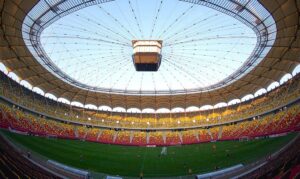
 Wales (0) 0 – 4 (1) Denmark
Wales (0) 0 – 4 (1) Denmark  Italy (0) 2 – 1 (0) Austria AET (0-0 at FT)
Italy (0) 2 – 1 (0) Austria AET (0-0 at FT)




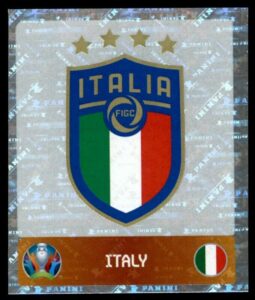 Who has impressed? Standout for me have been Italy – positive, fluid and solid at the back. They currently are my favourites. But the trouble with knockout football is that a big defensive display from the opposition in ninety minutes and extra-time and then anything can happen in the penalty shoot-out. Spain showed what they can do in their final game, and you can never write off a side that has Ronaldo in it, although Portugal have a tough tie up against Belgium. World Champions France weren’t at their fluid best, but in a difficult group emerged top and will more than fancy their chances against Switzerland.
Who has impressed? Standout for me have been Italy – positive, fluid and solid at the back. They currently are my favourites. But the trouble with knockout football is that a big defensive display from the opposition in ninety minutes and extra-time and then anything can happen in the penalty shoot-out. Spain showed what they can do in their final game, and you can never write off a side that has Ronaldo in it, although Portugal have a tough tie up against Belgium. World Champions France weren’t at their fluid best, but in a difficult group emerged top and will more than fancy their chances against Switzerland.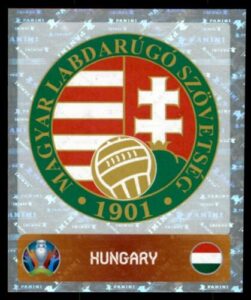 Of those leaving the tournament, the exit of Turkey and Poland must be considered shocks, whilst it was always going to be difficult for debutants Finland and North Macedonia. Scotland will be disappointed that they slipped out of the competition with a whimper rather than a bang, scoring just once and collecting just a solitary point. And Hungary were just six minutes from going through at the expense of Germany.
Of those leaving the tournament, the exit of Turkey and Poland must be considered shocks, whilst it was always going to be difficult for debutants Finland and North Macedonia. Scotland will be disappointed that they slipped out of the competition with a whimper rather than a bang, scoring just once and collecting just a solitary point. And Hungary were just six minutes from going through at the expense of Germany.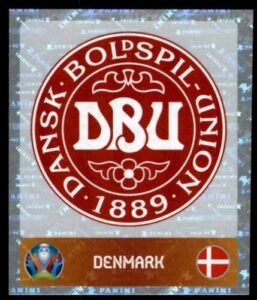
 Team performances: With games played simultaneously for matters of fairness in the final group stage, it doesn’t make for the best viewing for fans, or at least for those with neither the time or inclination to record games and watch each one, i.e. me. So some big decisions needed to be made – Finland v Belgium or Russia v Denmark, Sweden v Poland or Slovakia v Spain, and at what point to switch over from the England game. Needless to say, there was action that was missed, but, by and large, each of the final group games did its best to satisfy viewers – not least the final day’s offerings, with a record haul of 18 goals scored in a single day across the four matches – if only every matchday was like that? When it comes to best team performances, it’s hard to look past Spain’s 5-0 trouncing of Slovakia, whilst Italy, Belgium and the Netherlands all maintained their unblemished record – Italy’s made all the more impressive by the fact they had eight changes to their usual starting XI and even managed to sub their goalie in the dying minutes and didn’t look for one second diminished. Thank goodness Italy B team didn’t enter as a separate entity. However, my standout team performances of the final round have to go to a couple of sides who came out of the group wilderness to qualify at the last second, notably Switzerland, but, even more impressively, Denmark, who on the back of two weeks of heartache and a tally of zero points pulled through in emphatic, determined fashion in their 4-1 demolition of Russia – let’s be honest, we’re all Danish fans to some degree at the moment.
Team performances: With games played simultaneously for matters of fairness in the final group stage, it doesn’t make for the best viewing for fans, or at least for those with neither the time or inclination to record games and watch each one, i.e. me. So some big decisions needed to be made – Finland v Belgium or Russia v Denmark, Sweden v Poland or Slovakia v Spain, and at what point to switch over from the England game. Needless to say, there was action that was missed, but, by and large, each of the final group games did its best to satisfy viewers – not least the final day’s offerings, with a record haul of 18 goals scored in a single day across the four matches – if only every matchday was like that? When it comes to best team performances, it’s hard to look past Spain’s 5-0 trouncing of Slovakia, whilst Italy, Belgium and the Netherlands all maintained their unblemished record – Italy’s made all the more impressive by the fact they had eight changes to their usual starting XI and even managed to sub their goalie in the dying minutes and didn’t look for one second diminished. Thank goodness Italy B team didn’t enter as a separate entity. However, my standout team performances of the final round have to go to a couple of sides who came out of the group wilderness to qualify at the last second, notably Switzerland, but, even more impressively, Denmark, who on the back of two weeks of heartache and a tally of zero points pulled through in emphatic, determined fashion in their 4-1 demolition of Russia – let’s be honest, we’re all Danish fans to some degree at the moment. Individual performances: In terms of individual performances, Xherdan Shaqiri, Luka Modric and Emil Forsberg all made the headlines for impressive outings that largely sealed the fates of their respective teams, but Marco Verratti’s return from a knee injury in Italy’s 1-0 victory over Wales was a masterclass in midfield magnificence. However, whilst Verratti may be the head’s choice, the heart’s choice can only be Bukayo Saka. Starting for the first time in a major tournament, Saka looked completely at home, or rather he looked like he was showing everyone else round his home – right, guys, let me give you a tour, here’s the back door, through you go, Jack, that’s it Raheem, after you – 1-0. Grealish too made an impressive first start in the tournament, but there was no getting away from the overall effect of Saka’s energy, positivity and forward thrust, which gave England added impetus and was just what Southgate ordered. Although Saka’s now given Southgate a new headache in his forward line, as if having to choose between the likes of Sterling and Rashford, Mount and Grealish isn’t enough, Saka made himself the kid you can’t ignore. Mind you, it’s not a bad headache to have – certainly better than the one Danilo must have woken up with after Hugo Lloris’ best Anthony Joshua impersonation.
Individual performances: In terms of individual performances, Xherdan Shaqiri, Luka Modric and Emil Forsberg all made the headlines for impressive outings that largely sealed the fates of their respective teams, but Marco Verratti’s return from a knee injury in Italy’s 1-0 victory over Wales was a masterclass in midfield magnificence. However, whilst Verratti may be the head’s choice, the heart’s choice can only be Bukayo Saka. Starting for the first time in a major tournament, Saka looked completely at home, or rather he looked like he was showing everyone else round his home – right, guys, let me give you a tour, here’s the back door, through you go, Jack, that’s it Raheem, after you – 1-0. Grealish too made an impressive first start in the tournament, but there was no getting away from the overall effect of Saka’s energy, positivity and forward thrust, which gave England added impetus and was just what Southgate ordered. Although Saka’s now given Southgate a new headache in his forward line, as if having to choose between the likes of Sterling and Rashford, Mount and Grealish isn’t enough, Saka made himself the kid you can’t ignore. Mind you, it’s not a bad headache to have – certainly better than the one Danilo must have woken up with after Hugo Lloris’ best Anthony Joshua impersonation. Goals: And, as for goals, well, take your pick from the 39 recorded across the final group games. There was Andreas Christensen’s thunder-blaster against Russia, Luka Modric’s strike of beauty against Scotland, Ferran Torres’ cheeky flick against Slovakia and Xherdan Shaqiri’s curled finished against Turkey. Sadly, Martin Dubravka and Juraj Kucka both made the showreel, but for the wrong reasons – both scoring own goals in Slovakia’s 5-0 defeat to Spain – only the second time that has ever happened in Euros history, the first being in Portugal’s 4-2 loss to Germany – like they, say, you wait ages for a bus and two come along at once, though I suspect Dubravka, Kucka, Dias and Guerreiro could have done without these particular buses. It certainly keeps Own Goals’ tenure at the top of the Golden Boot chart alive and kicking, and whilst Emil Forsberg, Romelu Lukaku and Gini Wijnaldum make up the chasing pack, one man currently leads the way. No prizes for guessing who – Ronaldo, of course. And, on the topic of Ronaldo, it wouldn’t be a week at the Euros without another Ronaldo record. In fact, it’s like a game within a game, as he picks off decades-old records as if they’re fluff. This week’s record included that of becoming top scorer at the Euros and World Cup combined, with his twentieth (and subsequently twenty-first) goals surpassing the nineteen of Miroslav Klose. His second penalty against France also saw his international goals tally reach the hallowed 109 of Ali Daei, needing just one more to become the best international goalscorer of all time. Portugal face a tough test against Belgium next and potentially Italy in the quarterfinals and France in the semi-finals if they are to go all the way and retain their European crowns, but if they’re going to do it, you wouldn’t count against Ronaldo being the man to deliver the goals.
Goals: And, as for goals, well, take your pick from the 39 recorded across the final group games. There was Andreas Christensen’s thunder-blaster against Russia, Luka Modric’s strike of beauty against Scotland, Ferran Torres’ cheeky flick against Slovakia and Xherdan Shaqiri’s curled finished against Turkey. Sadly, Martin Dubravka and Juraj Kucka both made the showreel, but for the wrong reasons – both scoring own goals in Slovakia’s 5-0 defeat to Spain – only the second time that has ever happened in Euros history, the first being in Portugal’s 4-2 loss to Germany – like they, say, you wait ages for a bus and two come along at once, though I suspect Dubravka, Kucka, Dias and Guerreiro could have done without these particular buses. It certainly keeps Own Goals’ tenure at the top of the Golden Boot chart alive and kicking, and whilst Emil Forsberg, Romelu Lukaku and Gini Wijnaldum make up the chasing pack, one man currently leads the way. No prizes for guessing who – Ronaldo, of course. And, on the topic of Ronaldo, it wouldn’t be a week at the Euros without another Ronaldo record. In fact, it’s like a game within a game, as he picks off decades-old records as if they’re fluff. This week’s record included that of becoming top scorer at the Euros and World Cup combined, with his twentieth (and subsequently twenty-first) goals surpassing the nineteen of Miroslav Klose. His second penalty against France also saw his international goals tally reach the hallowed 109 of Ali Daei, needing just one more to become the best international goalscorer of all time. Portugal face a tough test against Belgium next and potentially Italy in the quarterfinals and France in the semi-finals if they are to go all the way and retain their European crowns, but if they’re going to do it, you wouldn’t count against Ronaldo being the man to deliver the goals. Moment: All players, I imagine, dream of their final international game ending with them sealing a win and lifting a trophy. Sadly, players all too often bow out with a whimper, if they get beyond the subs bench, that is. So, it was poignant to see one man get a deserved farewell, albeit without the goals and the trophy, when North Macedonian captain, talisman and general lynchpin, Goran Pandev brought time on his twenty-year international career against the Netherlands, earning a guard of honour as he was subbed off in the 69th minute. Pandev is the nation’s top scorer and appearance maker. He became the first man to captain his side in a major international tournament at this Euros and the first man to score a goal at a tournament. Aged 37, this was both Pandev’s first and last tournament and whilst three defeats from three may not be the dream ending, leading his nation out in the biggest tournament in Europe isn’t a bad way to sign off. And who doesn’t love a guard of honour. I may have had something in my eye as I watched on, but it definitely wasn’t a tear.
Moment: All players, I imagine, dream of their final international game ending with them sealing a win and lifting a trophy. Sadly, players all too often bow out with a whimper, if they get beyond the subs bench, that is. So, it was poignant to see one man get a deserved farewell, albeit without the goals and the trophy, when North Macedonian captain, talisman and general lynchpin, Goran Pandev brought time on his twenty-year international career against the Netherlands, earning a guard of honour as he was subbed off in the 69th minute. Pandev is the nation’s top scorer and appearance maker. He became the first man to captain his side in a major international tournament at this Euros and the first man to score a goal at a tournament. Aged 37, this was both Pandev’s first and last tournament and whilst three defeats from three may not be the dream ending, leading his nation out in the biggest tournament in Europe isn’t a bad way to sign off. And who doesn’t love a guard of honour. I may have had something in my eye as I watched on, but it definitely wasn’t a tear.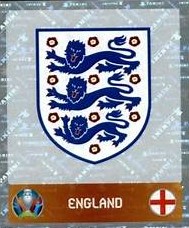 England: And so to England, and it has to be said on the back of the Scotland game, the mood of the nation had taken a decided turn for the worst, with fans even beginning to worry whether the Three Lions would get out of the group. However, such is the fickle fate of football that even before a ball was kicked in England’s final decisive game against the Czech Republic, they had qualified, thanks to other results. Yet, it was still decisive in determining England’s next opponents and talk prior to the game turned to the question of whether England should go for the win and top the group or play out for a draw and a second-placed finish, on the basis of a possibly easier route to the final. As if football was that easy to determine. With a win clearly all that was in Southgate and his team’s plans, England secured a 1-0 victory, a top-of-the-table finish and a Round of 16 game at Wembley. What was yet to be decided, however, were their opponents. As it stood, going into Group F’s final fixtures, Germany would be England’s nemesis once more, but there were a whole 90 minutes to play in both a Portugal and France and Germany and Hungary game that could reset the whole complexion of the group. In fact, the complexion didn’t change at all, despite at various points in the 90 minutes, England set to face Portugal, France, Portugal again, Hungary, Portugal once more, Germany, Portugal for a fourth time, until eventually an equalising goal from Goretzka brought everything back to where it had been 90 minutes previously. But it was a rollercoaster for those 90 minutes, as England hopes rallied as Hungary secured second-place, dive-bombed on France and, in true English fashion, ended up in the inevitable outcome of facing Germany. It could be worse, but it could be better, and whilst it’s appealing to say Germany aren’t at their best, that in itself is worrying, as they continue to get the job done regardless. And what if we had finished second you ask, well, there would have been the small matter of a game against Spain in Copenhagen, a possible quarterfinal against France in St Petersburg, before a meeting with Belgium, Portugal, Italy or Austria in the semi-final. Definitely a walk in the park then.
England: And so to England, and it has to be said on the back of the Scotland game, the mood of the nation had taken a decided turn for the worst, with fans even beginning to worry whether the Three Lions would get out of the group. However, such is the fickle fate of football that even before a ball was kicked in England’s final decisive game against the Czech Republic, they had qualified, thanks to other results. Yet, it was still decisive in determining England’s next opponents and talk prior to the game turned to the question of whether England should go for the win and top the group or play out for a draw and a second-placed finish, on the basis of a possibly easier route to the final. As if football was that easy to determine. With a win clearly all that was in Southgate and his team’s plans, England secured a 1-0 victory, a top-of-the-table finish and a Round of 16 game at Wembley. What was yet to be decided, however, were their opponents. As it stood, going into Group F’s final fixtures, Germany would be England’s nemesis once more, but there were a whole 90 minutes to play in both a Portugal and France and Germany and Hungary game that could reset the whole complexion of the group. In fact, the complexion didn’t change at all, despite at various points in the 90 minutes, England set to face Portugal, France, Portugal again, Hungary, Portugal once more, Germany, Portugal for a fourth time, until eventually an equalising goal from Goretzka brought everything back to where it had been 90 minutes previously. But it was a rollercoaster for those 90 minutes, as England hopes rallied as Hungary secured second-place, dive-bombed on France and, in true English fashion, ended up in the inevitable outcome of facing Germany. It could be worse, but it could be better, and whilst it’s appealing to say Germany aren’t at their best, that in itself is worrying, as they continue to get the job done regardless. And what if we had finished second you ask, well, there would have been the small matter of a game against Spain in Copenhagen, a possible quarterfinal against France in St Petersburg, before a meeting with Belgium, Portugal, Italy or Austria in the semi-final. Definitely a walk in the park then. Group E: Slovakia (0) 0 – 5 (2) Spain
Group E: Slovakia (0) 0 – 5 (2) Spain Group E: Sweden (1) 3 – 2 (0) Poland
Group E: Sweden (1) 3 – 2 (0) Poland Group F: Germany (0) 2 – 2 (1) Hungary
Group F: Germany (0) 2 – 2 (1) Hungary Group F: France (1) 2 – 2 (1) Portugal
Group F: France (1) 2 – 2 (1) Portugal Group D: England (1) 1 – 0 (0) Czech Republic
Group D: England (1) 1 – 0 (0) Czech Republic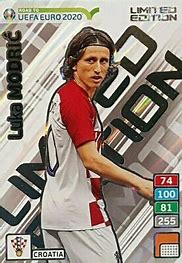 Group D: Scotland (1) 1 – 3 (1) Croatia
Group D: Scotland (1) 1 – 3 (1) Croatia Group B: Russia (0) 1 – 4 (1) Denmark
Group B: Russia (0) 1 – 4 (1) Denmark Group B: Finland (0) 0 – 2 (0) Belgium
Group B: Finland (0) 0 – 2 (0) Belgium Group C: Ukraine (0) 0 – 1 (1) Austria
Group C: Ukraine (0) 0 – 1 (1) Austria Group A: Italy (0) 1 – 0 (0) Wales
Group A: Italy (0) 1 – 0 (0) Wales Monday sees the completion of two more groups, with Group C games featuring North Macedonia v Netherlands and Ukraine v Austria. North Macedonia travel to Amsterdam having already been eliminated and the Dutch guaranteed progression to the knockout phase. The real interest lies in the game in Bucharest, where Ukraine and Austria both have three points. A draw or win sees Ukraine finish second, whilst for Austria to grab that spot, they must win the game, or they will have to rely on being one of the best four third-place finishers. Ukraine have looked a more adventurous side in their two fixtures at the Euros, but the return of striker Marko Arnautovic after his one-match suspension will boost Austria. For me though, Ukraine will take second spot after beating the Austrians.
Monday sees the completion of two more groups, with Group C games featuring North Macedonia v Netherlands and Ukraine v Austria. North Macedonia travel to Amsterdam having already been eliminated and the Dutch guaranteed progression to the knockout phase. The real interest lies in the game in Bucharest, where Ukraine and Austria both have three points. A draw or win sees Ukraine finish second, whilst for Austria to grab that spot, they must win the game, or they will have to rely on being one of the best four third-place finishers. Ukraine have looked a more adventurous side in their two fixtures at the Euros, but the return of striker Marko Arnautovic after his one-match suspension will boost Austria. For me though, Ukraine will take second spot after beating the Austrians. The evening kick-offs see Group B come to its conclusion with Finland playing Belgium in St Petersburg and Russia travelling to Copenhagen to face the Danes. The Belgians have already secured a last sixteen spot, whilst the Finns could progress with a win, while a draw will be enough if Russia lose to Denmark. Unfortunately for Finland I can’t see them taking anything from the game and will be eliminated. For Denmark and Russia, its all to play for. The Russians will go through to the knockout phase if they win, or if they draw and the Finns don’t overcome the Belgians. Denmark too can progress but need to beat Russia by more than one goal and hope that Finland lose. This is a difficult one to call, but I think Russia will probably do enough with a draw.
The evening kick-offs see Group B come to its conclusion with Finland playing Belgium in St Petersburg and Russia travelling to Copenhagen to face the Danes. The Belgians have already secured a last sixteen spot, whilst the Finns could progress with a win, while a draw will be enough if Russia lose to Denmark. Unfortunately for Finland I can’t see them taking anything from the game and will be eliminated. For Denmark and Russia, its all to play for. The Russians will go through to the knockout phase if they win, or if they draw and the Finns don’t overcome the Belgians. Denmark too can progress but need to beat Russia by more than one goal and hope that Finland lose. This is a difficult one to call, but I think Russia will probably do enough with a draw.